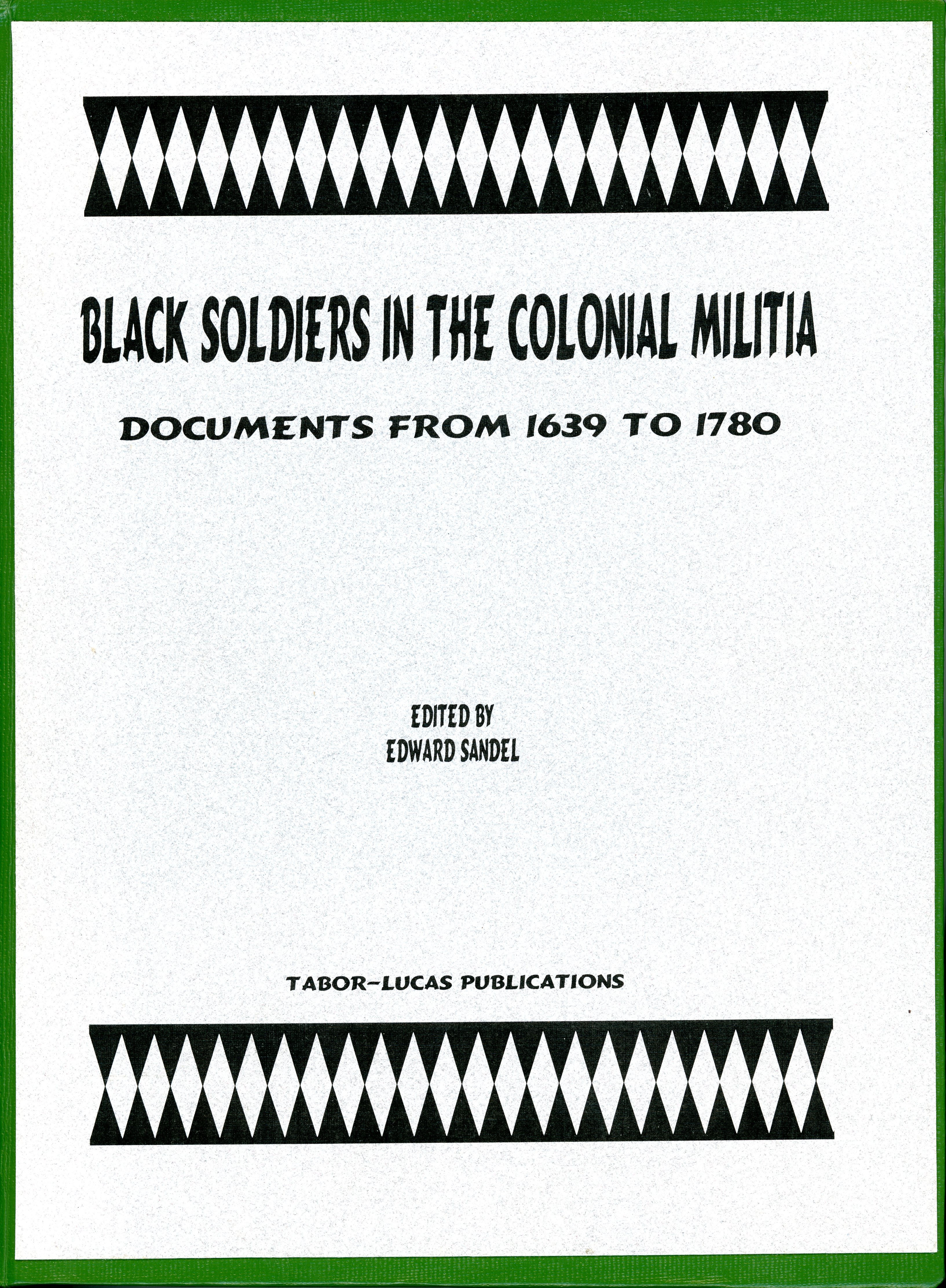This post was written by Mahogani Harper, Research Services Assistant.
Black History Month began from the moment the 13th amendment was added to the Constitution until today. Since that moment, Black Americans have continued to be sewn into every event or change occuring in the United States.

Sandel, Edward, Black Soldiers in the Colonial Militia: Documents from 1639-1780, E184.6 .B49 1994, Special Collections Research Center, George Mason University.
With these finger prints littered throughout U.S. history, this year’s theme for Black History Month is “African Americans in Times of War.” With the 100th anniversary of World War I coming to an end, this month’s purpose is to honor the roles played and sacrifices made by African Americans during times of war. This is a time to remember those forgotten Black veterans and acknowledge them for their contributions. The majority of African Americans who contributed to the war effort, both in warfare and in the work force, were not acknowledged until well after many of the wars ended and some were left out of the story all together. Although they had been unremembered, records and documents still remain, providing evidence of their efforts from colonial war times. Edward Sandel’s, Black Soldiers in the Colonial Militia: Documents from 1639-1780, is a rare examination into Black and Native American experiences during times of war in the 17th and 18th centuries through documentation of 44 colonial-era transcripts. The transcripts within the book feature details enclosing the types of service blacks likely performed, the manner in which they were armed, incentives for enlistment, and their rewards for military service. Although these documents are from the perspective of the white men during that time, it successfully aimed to portray accurate depictions of the expectations and experiences of many Black Americans during their colonial times of war, both good and bad.
You can find this amazing book and many others that fit with in theme of Black History Month here at the Special Collections Research Center. For other items we are featuring, check out some of our previous blog posts as well as our social media accounts.
Follow Special Collections Research Center on Social Media at our Facebook, Instagram, and Twitter accounts. To search the collections held at Special Collections Research Center, go to our website and browse the finding aids by subject or title. You may also e-mail us at speccoll@gmu.edu or call 703-993-2220 if you would like to schedule an appointment, request materials, or if you have questions. Appointments are not necessary to request and view collections.

